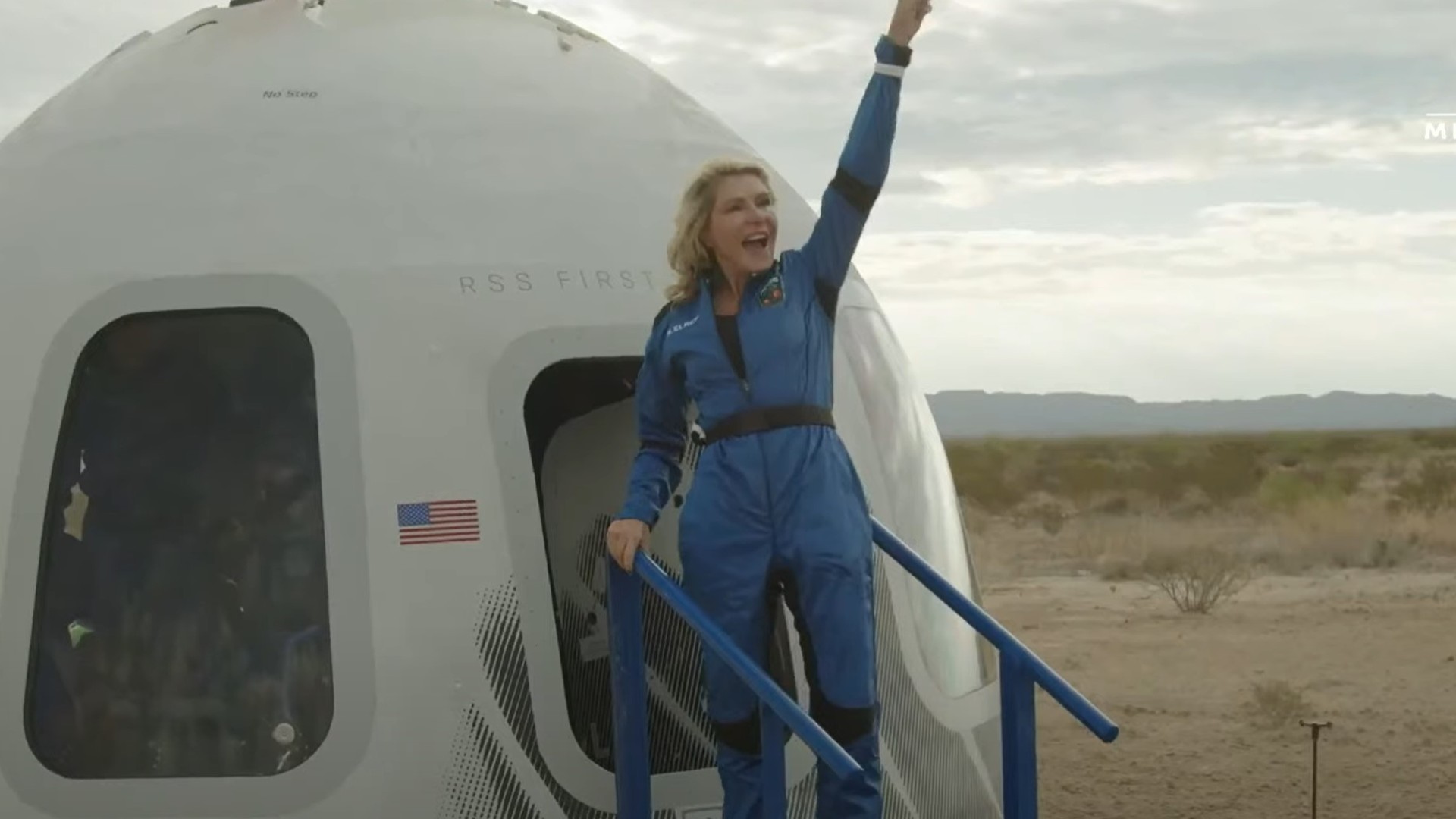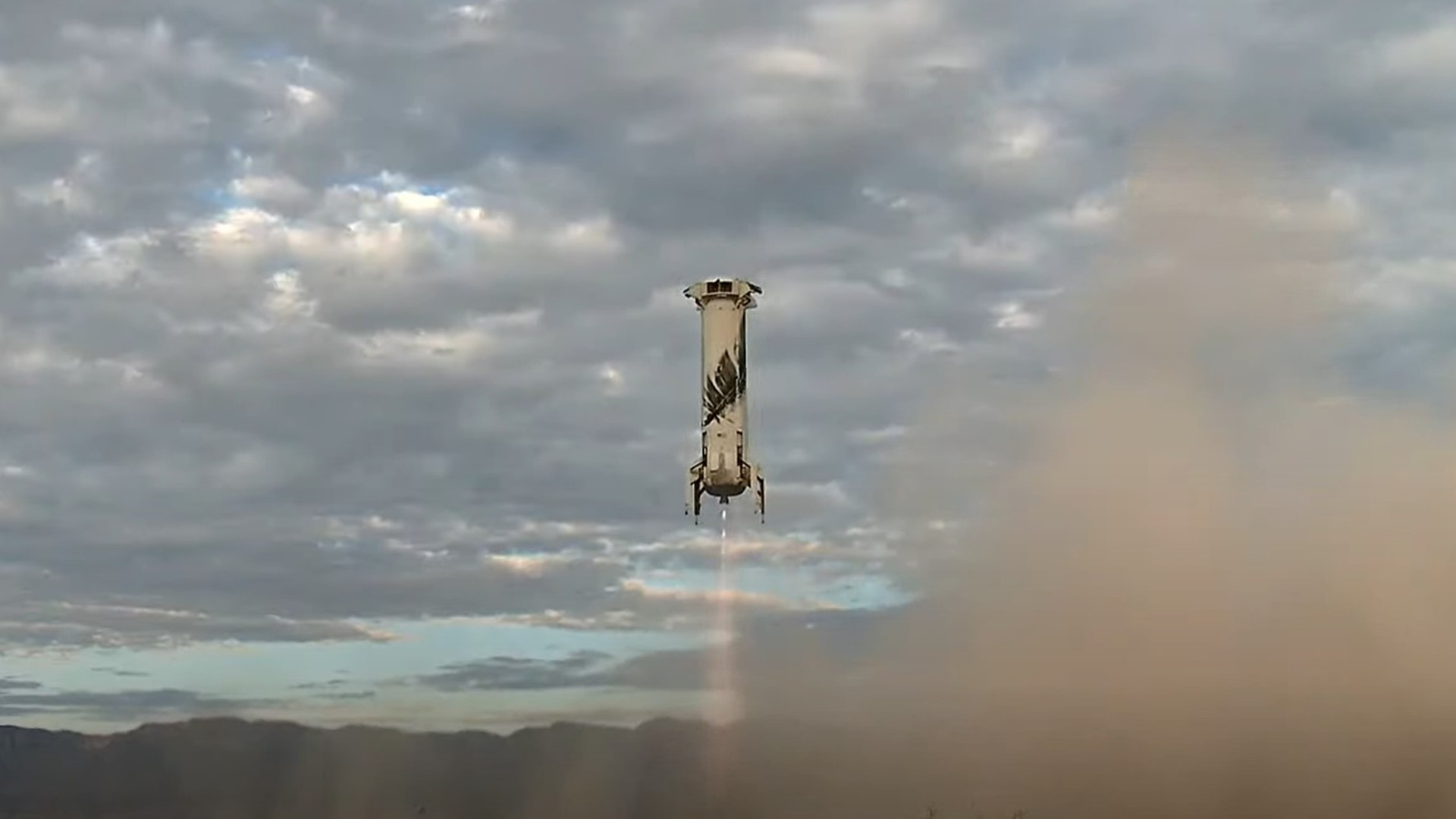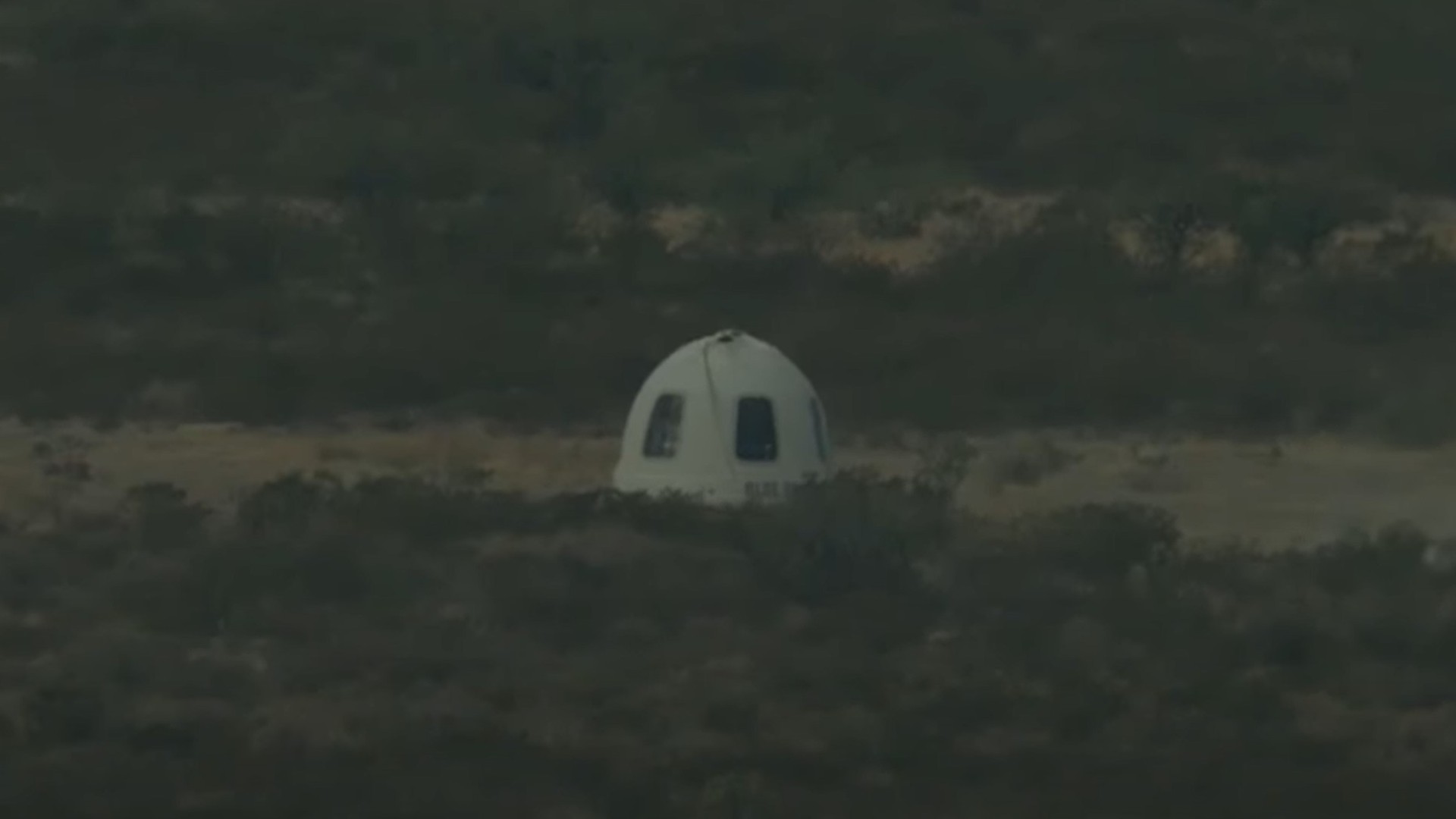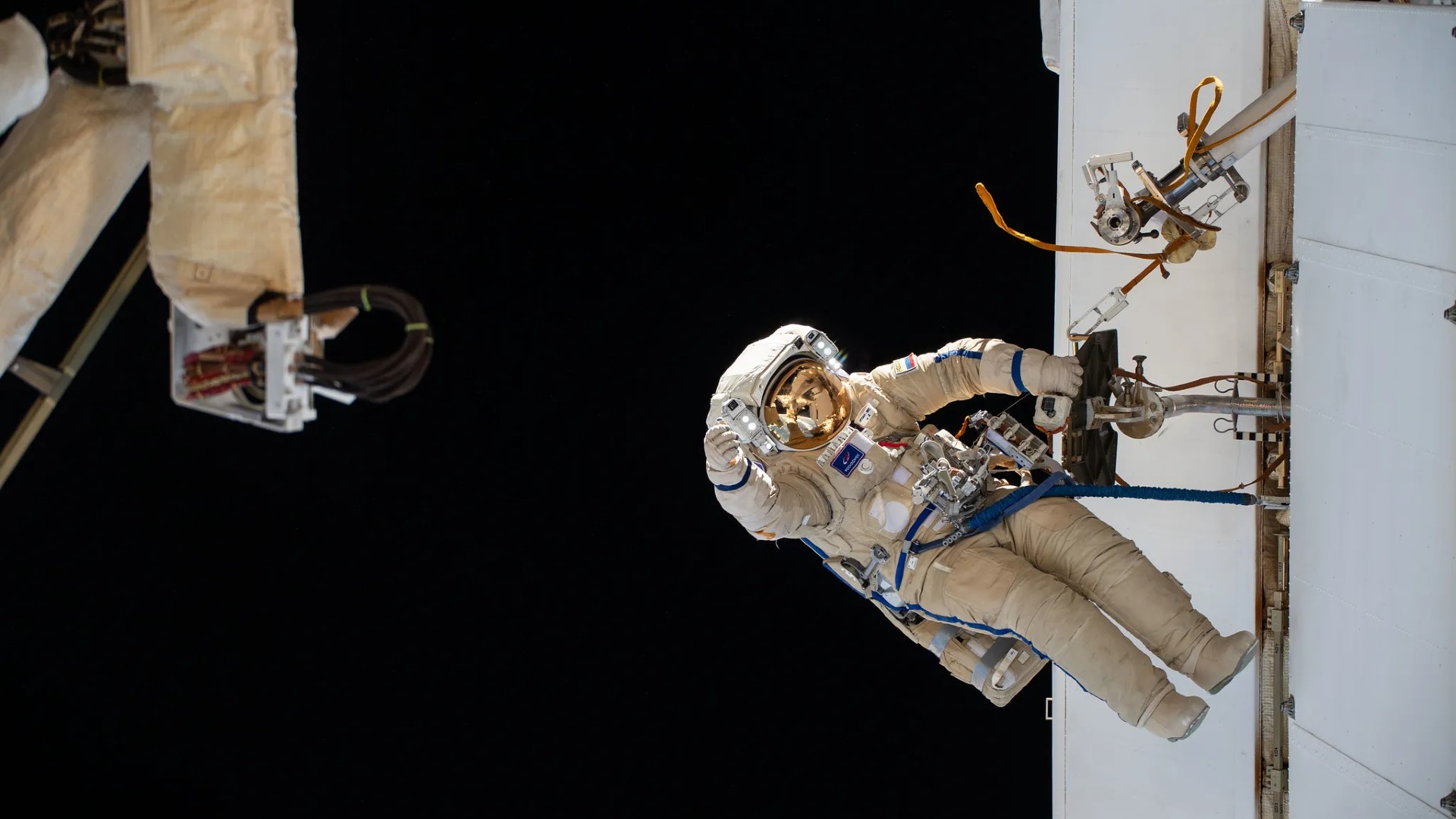'One of the cleanest flights I've seen.' Blue Origin launches 6 people to space, lands safely on NS-26 flight (video)
Breaking space news, the latest updates on rocket launches, skywatching events and more!
You are now subscribed
Your newsletter sign-up was successful
Want to add more newsletters?

Delivered daily
Daily Newsletter
Breaking space news, the latest updates on rocket launches, skywatching events and more!

Once a month
Watch This Space
Sign up to our monthly entertainment newsletter to keep up with all our coverage of the latest sci-fi and space movies, tv shows, games and books.

Once a week
Night Sky This Week
Discover this week's must-see night sky events, moon phases, and stunning astrophotos. Sign up for our skywatching newsletter and explore the universe with us!

Twice a month
Strange New Words
Space.com's Sci-Fi Reader's Club. Read a sci-fi short story every month and join a virtual community of fellow science fiction fans!
Blue Origin launched and landed its eighth suborbital space tourism mission this morning.
Blue Origin, which is run by Amazon founder Jeff Bezos, sent the six-person NS-26 flight to space from its West Texas spaceport today. Liftoff occurred at 9:07 a.m. EDT (1307 GMT; 8:07 a.m. local Texas time). The flight reached a maximum altitude of around 341,000 feet (104,000 meters) before coming back for a touchdown in the West Texas dust around 9:19 a.m. EDT (1319 GMT or 8:19 a.m. local time).
As the crew stepped out of the RSS First Step capsule, they cheered to the friends and family gathered to watch their return. "I went to space!" screamed passenger Nicolina Elrick as she pumped her hands in the air as the first crewmember out.
The mission appeared to have gone flawlessly. "Up and back. That is just one of the cleanest flights I've seen from this rocket. But behind every rocket is an extraordinary team," said Blue Origin launch commentator Ariane Cornell upon the capsule's return.
As the mission's name suggests, NS-26 was the 26th flight overall for New Shepard. The mission launched atop the company's New Shepard rocket, Blue Origin's reusable rocket-capsule combo. It was the eighth such mission to carry people.
New Shepard flights last 10 to 12 minutes from liftoff to capsule touchdown. Passengers aboard the vehicle get to experience a few minutes of weightlessness and travel above the Kármán line, the 62-mile-high (100-kilometer-high) marker that many people regard as the boundary of outer space.
Blue Origin has not revealed how much a seat aboard New Shepard costs. Virgin Galactic, the company's main competitor in the suborbital space tourism field, currently charges $600,000 per ticket.
Breaking space news, the latest updates on rocket launches, skywatching events and more!
The six people that flew on NS-26 included philanthropist and entrepreneur Nicolina Elrick, university professor Rob Ferl, businessman Eugene Grin, cardiologist Eiman Jahangir, college student Karsen Kitchen and entrepreneur Ephraim Rabin.
Ferl became the first NASA-funded researcher to fly to space with the flight, during which the University of Florida scientist and director of the university's space institute conducted experiments on plant growth in microgravity. "As commercial space programs have advanced and access to space has become more available, I always hoped I might be able to conduct our experiments myself in microgravity," Ferl said in a University of Florida statement.
"I feel very grateful for this opportunity. After years, decades even, of working with astronauts to conduct our experiments, it's an honor to be at the forefront of researchers conducting their own experiments in space," Ferl said.
The 21-year-old Kitchen set a record on the flight, becoming the youngest woman ever to cross the Kármán line, according to Blue Origin. But not everyone will regard her as the youngest woman to reach space; NASA and the U.S. military award astronaut wings to anyone who gets above 50 miles (80 km), a mark that 18-year-old Anastatia Mayers hit on a Virgin Galactic flight in August 2023.
NS-26 was the third launch for New Shepard since the vehicle failed on a robotic research flight in September 2022, resulting in the loss of the first-stage rocket. (The capsule landed safely.) New Shepard returned to flight with an uncrewed launch in December 2023, then flew people this past May on NS-25.
Editor's note: This story was updated at 5 p.m. ET on Aug. 29 to give the correct figure for Virgin Galactic's current ticket price. It's $600,000, not $450,000, as the story originally stated.

Michael Wall is a Senior Space Writer with Space.com and joined the team in 2010. He primarily covers exoplanets, spaceflight and military space, but has been known to dabble in the space art beat. His book about the search for alien life, "Out There," was published on Nov. 13, 2018. Before becoming a science writer, Michael worked as a herpetologist and wildlife biologist. He has a Ph.D. in evolutionary biology from the University of Sydney, Australia, a bachelor's degree from the University of Arizona, and a graduate certificate in science writing from the University of California, Santa Cruz. To find out what his latest project is, you can follow Michael on Twitter.




